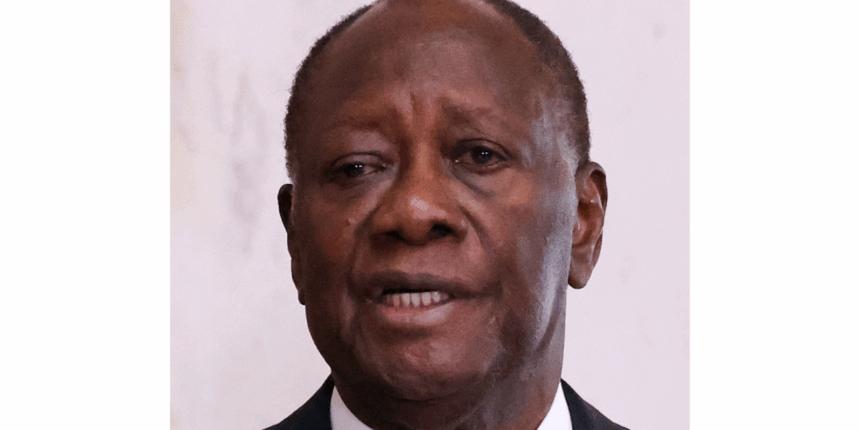-
Controversy trails 83-year-old Ouattara’s 89.77% victory as key rivals barred from contesting
-
Ivory Coast President Alassane Ouattara, 83, wins a controversial fourth term with 89.77% of the vote.
-
Main opposition figures Laurent Gbagbo and Tidjane Thiam barred from contesting, fuelling legitimacy concerns.
Ivory Coast’s President, Alassane Ouattara, has won a fourth term in office, securing 89.77 percent of votes in an election marked by tension, low turnout, and the exclusion of major opposition figures.
ATTENTION: Click “HERE” to join our WhatsApp group and receive News updates directly on your WhatsApp!
The Independent Electoral Commission announced the provisional results on Monday, following a poll in which nearly nine million Ivorians cast their ballots.
However, the credibility of the vote has come under fire after Ouattara’s two main rivals — former President Laurent Gbagbo and former Credit Suisse CEO Tidjane Thiam — were barred from contesting. Gbagbo was disqualified due to a criminal conviction, while Thiam was deemed ineligible for holding French citizenship.
Political analysts say the absence of these opposition heavyweights contributed to widespread apathy and sharp divisions across the country.
“Their absence and the rising tension in recent days foretold a significant demobilisation of the electorate,” said William Assanvo, a researcher at the Institute for Security Studies (ISS).
Turnout reportedly hovered around 50.10 percent, with participation near 100 percent in Ouattara’s northern strongholds but as low as 20 percent in opposition-dominated southern regions like Gagnoa, Gbagbo’s home base.
Entrepreneur Jean-Louis Billon finished a distant second with just 3.09 percent of votes, according to Commission President Ibrahime Kuibiert Coulibaly. Billon acknowledged the low turnout but congratulated Ouattara, saying the process reflected “serious voter fatigue.”
The opposition coalition, however, has rejected the results, declaring that Ouattara’s victory “lacks legitimacy” and calling for new elections.
READ ALSO:
Political analyst Geoffroy Kouao described the result as “Soviet-esque,” arguing that the turnout revealed both regional polarisation and voter disengagement.
“Ouattara’s supporters turned out in force, while opposition backers simply stayed home,” Kouao observed.
The vote followed a tense campaign period marred by deadly clashes that left at least eight people dead and dozens injured. The government had imposed a night-time curfew and deployed 44,000 security personnel nationwide to prevent violence.
Ouattara, who first took power after the 2010–2011 post-election crisis that claimed more than 3,000 lives, has been credited with steering Ivory Coast toward economic stability. Yet, his decision to seek a fourth term has sparked criticism that he is entrenching himself in power.
By Monday, calm had largely returned to Abidjan, with pro-government newspaper Patriote hailing the election as proof that “Ivorians said no to prophets of doom,” while opposition daily Notre Voie described the exercise as one that “reflects a divided nation.”

